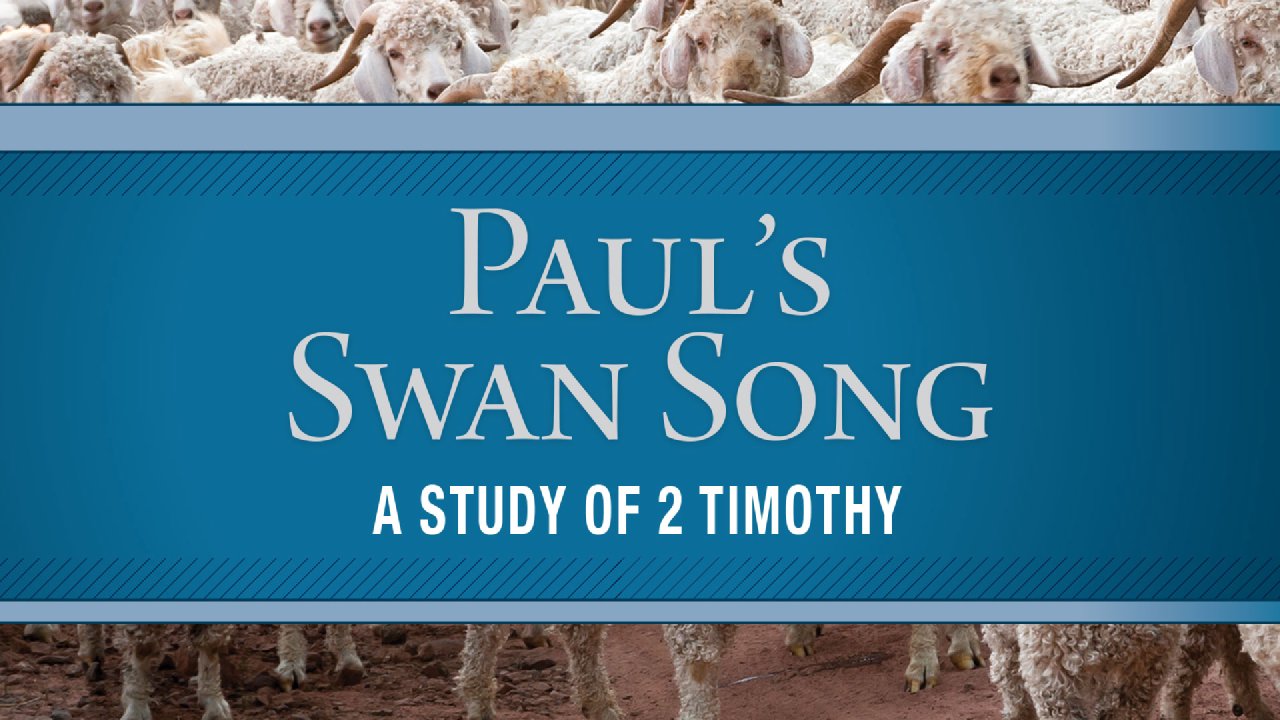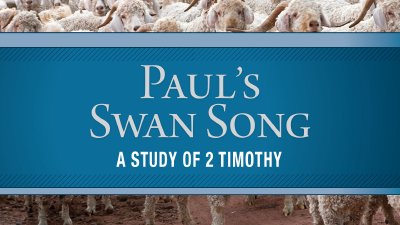It is intriguing what passes through the minds of those who reach the end of life's trail. Events of yesteryear return to their memory as time momentarily stands still, and they get caught up in the reverie of scenes that occurred long ago. In such mental journeys, words spoken are remembered and rehearsed as if they were uttered yesterday. In addition, there are people who step out of the past, whose faces are mentally visualized and whose deeds are clearly recalled, often in detail.
During our busy years, we seldom pause long enough to reflect. However, as the lingering hours of twilight slow our pace, many people and places pass in review. So it was with the aging apostle Paul as his death drew nearer. In these seven verses, Paul recalls those who stood alongside him as loyal friends in his previous years as well as those who broke his heart and/or caused him harm. These names form a circle of honor and dishonor.

A Circle of Honor and Dishonor
Message 13
Pastor Chuck Swindoll • 2 Timothy 4:9–15
Urgent Words from a Dungeon
Pastor Chuck Swindoll
Second Timothy is Paul's “swan song.” He wrote nothing more once he completed these words to Timothy, his “son in the faith.” The aging apostle, spending his last hours in a Roman dungeon, could feel the hot breath of death on the back of his neck. He was lonely, cold, abandoned, and flooded with memories . . . but he was not timid or desperate. These may be Paul's final words, but there's no self pity or bitterness—only candor and urgency. The letter is emotional, personal, and passionate. Writing by candlelight, he expressed deep affection mixed with strong exhortations, insightful instruction, and intimate reflections. He was passing the torch to a man who was younger than he, whom he hoped would grasp it firmly and carry it for the rest of his life and ministry with confidence and conviction. Here is a powerful letter for the ages, written by a rugged, battle-weary warrior, preserved for all of us to read and heed so that we might finish the race strong and well.
Tender Words from a Mentor
Pastor Chuck Swindoll • 2 Timothy 1:1–7
Few things are more encouraging than a letter from a mentor. The words of reassurance, the reminders of meaningful days gone by, and especially that personal touch, which cracks through our outer shell and resonates within our hearts, makes letters such as these permanent fixtures in our minds. We don't forget them—we can't! One day, while pressing on through several trials and personal struggles, Timothy was handed this letter, written by the man who meant more to him than any other man on earth. As he sat down and began to read it, he was surely gripped by a rush of emotions. His eyes were glued to the page. How he missed this man who had invested so many years of his life in him! What a deep and satisfying feeling to know that his spiritual father continued to care and to pray for him . . . and to read that he longed to be with him. By putting ourselves in Timothy's place, the words of Paul take on new meaning. If you will allow your imagination to take you there, this letter will “come alive” afresh and anew. Let that happen today.
Straight Talk to the Timid and Reluctant
Pastor Chuck Swindoll • 2 Timothy 1:8–12
Not all of God's spokespersons are confident and bold. Not every leader is ready to stand strong and all alone, if necessary, in the face of conflict. There are some who have been called to do God's work but are timid, shy, and fearful. This was true even among some whose names appear in the Bible. Stop and think. Let's call some of those people to mind. Without trying too hard we could name some who were reluctant (remember Moses at the burning bush?), others who were hesitant (like Esther, when she first considered presenting her case before the king), a few who lacked courage (as King Saul did before the giant, Goliath), and occasionally we find one who was downright resistant and rebellious (think Jonah). It shouldn't surprise us, then, that a 30-something-year-old pastor named Timothy was in that same category. Perhaps his shyness could be traced to his ill health. Maybe it stemmed from personal feelings of intimidation that only intensified while travelling with Paul—a man of enormous courage and grit. Whatever the cause, Paul knew that the future Timothy faced would require his strongest and best efforts. Having affirmed Timothy's godly roots and sincere faith (2 Timothy 1:5) and having urged him to “kindle afresh” the gift God had given him (1:6), Paul now offered straight talk on courage and persistence.




